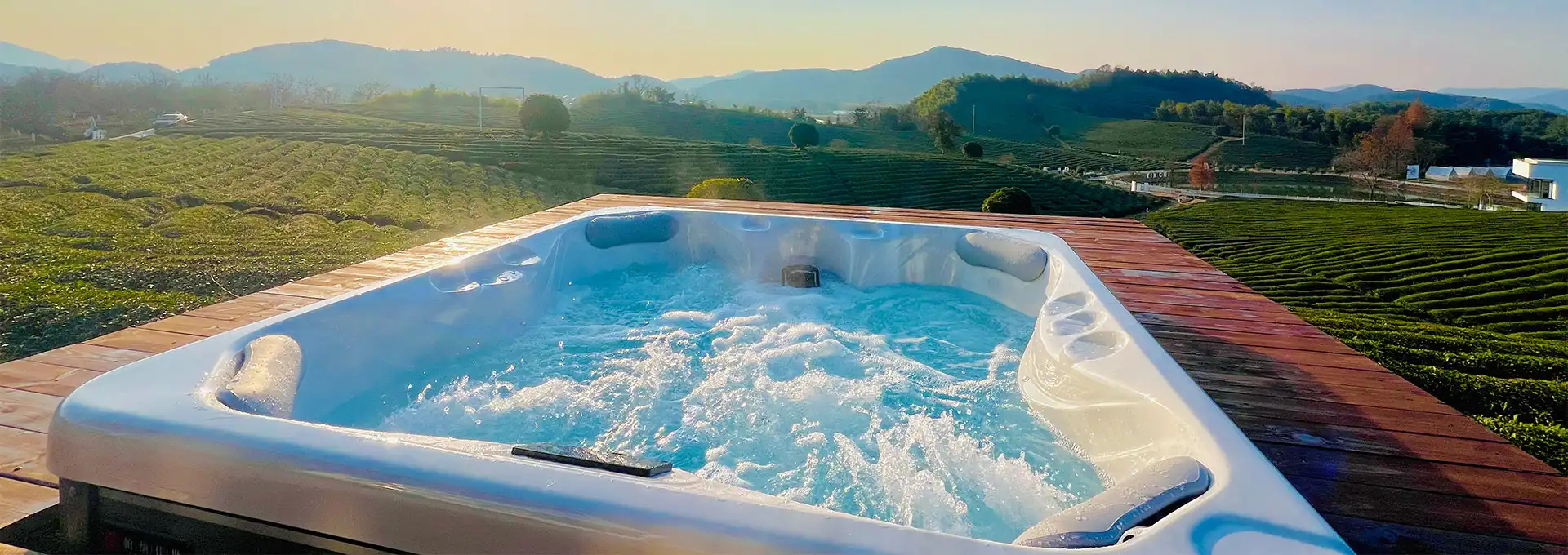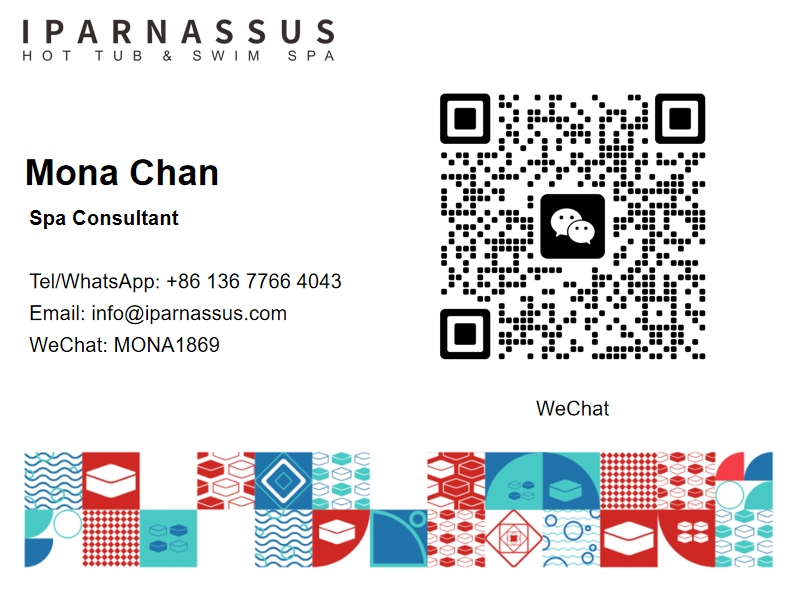Can You Drink in a Hot Tub?
2024-07-09 09:22:37
Relaxing in a hot tub with a refreshing drink in hand may seem like the perfect way to unwind, but is it safe or advisable to consume alcohol while soaking? This question often arises when people consider enjoying their favorite beverages in a hot tub, especially in hotel settings. While it might be tempting to sip on a cocktail or beer while luxuriating in the warm, bubbling water, there are several factors to consider regarding safety, health, and etiquette. Let's explore the implications of drinking in a hot tub and address some common concerns related to hotel hot tubs.
Are hotel hot tubs sanitary?
The cleanliness and hygiene of hotel hot tubs are frequent concerns for travelers. While most reputable hotels maintain their hot tubs to high standards, it's natural to wonder about the sanitation practices and potential health risks associated with shared facilities.
Hotel hot tubs are generally designed to be sanitary, with regular cleaning and maintenance schedules in place. Most establishments use a combination of chlorine or bromine-based sanitizers, along with filtration systems, to keep the water clean and free from harmful bacteria. However, the effectiveness of these measures can vary depending on the hotel's diligence and the number of users.
To ensure optimal sanitation, hotels typically follow strict guidelines set by health departments and industry standards. These may include frequent water testing, regular draining and refilling of the tub, and thorough cleaning of surfaces. Many hotels also post signs reminding guests to shower before entering the hot tub and to avoid using it if they have open wounds or infections.
Despite these precautions, it's important to note that hot tubs can still harbor certain bacteria and microorganisms. The warm water creates an environment where some pathogens can thrive if not properly managed. Common issues that may arise in poorly maintained hot tubs include skin rashes, ear infections, and in rare cases, more serious conditions like Legionnaires' disease.
To minimize risks, guests should observe the hot tub's appearance and smell before use. Clear, odorless water is a good sign, while cloudy or strong-smelling water may indicate poor maintenance. It's also advisable to limit time spent in the hot tub and to avoid submerging your head underwater.
Hotels are increasingly transparent about their cleaning protocols, especially in the wake of the COVID-19 pandemic. Many now provide detailed information about their sanitation practices, including the frequency of cleaning and the types of products used. If you have concerns, don't hesitate to ask the hotel staff about their maintenance procedures or to request the most recent water quality test results.
How long can you stay in a hotel hot tub?
The duration of time you can safely spend in a hotel hot tub is an important consideration for both comfort and health reasons. While there's no universal rule for how long one should soak, several factors influence the recommended time limit.
Most experts suggest limiting hot tub sessions to about 15-30 minutes at a time. This recommendation is based on the body's ability to regulate temperature and the potential risks associated with prolonged exposure to hot water. The primary concern is overheating, which can lead to dehydration, dizziness, and in extreme cases, heat stroke.
The temperature of the hot tub plays a crucial role in determining safe soak times. Most hot tubs are set between 100°F and 104°F (37.8°C to 40°C). At these temperatures, the body can struggle to cool itself effectively, especially when mostly submerged. As a general guideline, the hotter the water, the shorter your soak should be.
Individual factors also come into play when considering hot tub time limits. Age, overall health, and pregnancy can all affect how long it's safe to stay in a hot tub. Older adults, young children, and pregnant women are often advised to limit their time or avoid hot tubs altogether due to increased sensitivity to heat.
Hydration is another critical factor. The hot water causes sweating, even if you don't notice it, which can lead to dehydration. It's essential to drink plenty of water before, during, and after using a hot tub to replenish fluids lost through sweating.
To enjoy a hotel hot tub safely, consider these tips:
1. Start with shorter sessions and gradually increase the time if you feel comfortable.
2. Take breaks to cool down, especially if you plan on multiple soaks.
3. Listen to your body – if you feel lightheaded, nauseous, or uncomfortably hot, exit the tub immediately.
4. Be aware of any medical conditions that might affect your ability to regulate body temperature.
5. Avoid alcohol consumption, which can increase the risk of dehydration and impair judgment.
Hotels often post guidelines or have staff members who can provide advice on safe usage times. Some may even have timers or scheduled cleaning breaks that naturally limit soak durations. Always follow the posted rules and listen to staff recommendations for the safest and most enjoyable hot tub experience.
What are the dangers of hotel hot tubs?
While hotel hot tubs can offer a relaxing and enjoyable experience, it's important to be aware of potential dangers associated with their use. Understanding these risks can help guests make informed decisions and take necessary precautions to ensure a safe soak.
One of the primary concerns is the risk of infections. Hot tubs, particularly those that are not properly maintained, can become breeding grounds for various bacteria and other microorganisms. Some common infections associated with hot tub use include:
1. "Hot tub rash" (Pseudomonas folliculitis): A skin infection that causes red, itchy bumps.
2. Ear infections (Otitis externa): Often referred to as "swimmer's ear."
3. Legionnaires' disease: A severe form of pneumonia caused by Legionella bacteria.
4. Urinary tract infections: More common in women due to the warm water environment.
To mitigate these risks, hotels must maintain strict cleaning and disinfection protocols. However, guests should also take personal precautions, such as showering before and after use, avoiding swallowing the water, and refraining from use if they have open cuts or wounds.
Another significant danger is the risk of drowning or near-drowning incidents. While hot tubs are typically shallow, the combination of hot water, jet currents, and potential alcohol consumption can create hazardous conditions. Guests may become disoriented, fall asleep, or slip underwater, especially if impaired by alcohol or medications.
Overheating and heat-related illnesses pose another set of risks. Extended exposure to hot water can lead to:
1. Dehydration
2. Heat exhaustion
3. Heat stroke
4. Fainting or dizziness
5. Nausea and vomiting
These risks are heightened for certain groups, including pregnant women, young children, the elderly, and those with pre-existing health conditions. Hotels should provide clear warnings and guidelines for safe use, including recommended time limits and temperature settings.
Chemical exposure is another potential danger. Improperly balanced water chemistry can lead to skin and eye irritation. In extreme cases, chemical burns or respiratory issues may occur if chlorine levels are too high or if there's inadequate ventilation in indoor hot tub areas.
Slip and fall accidents around the hot tub area are also a concern. Wet surfaces can be extremely slippery, and guests should exercise caution when entering or exiting the tub. Hotels can mitigate this risk by providing non-slip mats and adequate lighting in the hot tub area.
Lastly, the danger of entrapment should not be overlooked. Although rare, there have been incidents where users, particularly children, have become trapped by the suction of hot tub drains. Modern hot tubs are equipped with safety features to prevent this, but guests should still be aware of the location of emergency shut-off switches.
To ensure a safe hot tub experience, guests should:
1. Observe posted safety rules and time limits
2. Avoid alcohol consumption before or during hot tub use
3. Stay hydrated and exit the tub if feeling dizzy or uncomfortable
4. Keep children under close supervision at all times
5. Be aware of any personal health conditions that may be exacerbated by hot tub use
6. Report any concerns about water quality or maintenance to hotel staff immediately
By being informed about these potential dangers and taking appropriate precautions, guests can minimize risks and enjoy the relaxing benefits of hotel hot tubs safely.
If you want to get more information about this product, you can contact us at info@iparnassus.com!
References:
1. Centers for Disease Control and Prevention. (2022). "Healthy Swimming/Recreational Water."
2. World Health Organization. (2021). "Guidelines for Safe Recreational Water Environments."
3. American Red Cross. (2023). "Water Safety Tips."
4. Journal of the American Medical Association. (2019). "Health Risks Associated with Recreational Water Use."
5. International Journal of Environmental Research and Public Health. (2020). "Microbial Safety of Public Hot Tubs."
6. National Swimming Pool Foundation. (2022). "Hot Tub & Spa Safety."
7. Environmental Health Perspectives. (2018). "Chemical Exposures in Swimming Pools and Hot Tubs."
8. Journal of Travel Medicine. (2021). "Infections Associated with Hotel Hot Tubs."
9. Injury Prevention. (2020). "Drowning and Near-Drowning Incidents in Recreational Water Facilities."
10. Hotel Management International. (2023). "Best Practices for Hotel Hot Tub Maintenance and Safety."
Send Inquiry
Related Industry Knowledge
- How to Ground a Hot Tub?
- What Type of Maintenance Does a Swim Spa Need?
- Can You Get Electrocuted in a Hot Tub?
- What Should I Look for in a Swim Spa?
- Why Should Diabetics Not Use Hot Tubs?
- Why Does My Hot Tub Feel Gritty?
- What to Look for in a Swim Spa?
- How to maintain a cold plunge tub?
- What are the Maintenance Requirements for a 7 Person Swim Spa?
- Does a Swim Spa Raise Home Value?



